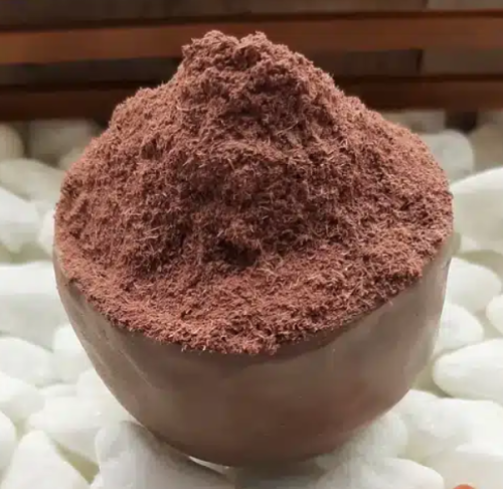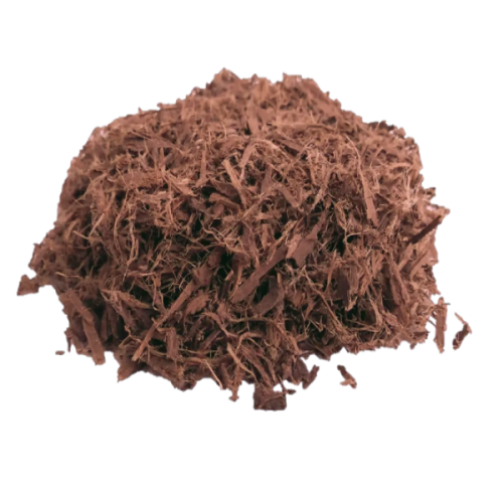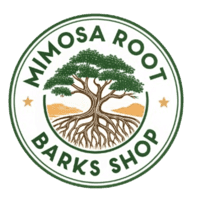Ethically Sourced Mimosa Hostilis Root Bark: Ideal for Dyeing and Research
$60.88 – $1,606.19
Mimosa Hostilis root Bark Whole has gained significant interest due to the presence of specific alkaloids. Our whole Mimosa Hostilis Root Bark is ideal for traditional uses in dyeing and research. Ethically sourced for purity and environmental respect. Not for Human consumption!
- Environmental Impact: Sustainable harvesting preserves the ecosystem and prevents overharvesting.
- Community Support: Ethical suppliers often work directly with local communities, creating fair trade opportunities.
- Quality Assurance: Ethically sourced products often undergo stricter quality checks, ensuring potency and safety.
- Vibrant Color Spectrum: Mimosa Hostilis creates a stunning range of colors that are highly sought-after in natural dyeing.
- Chemical-Free Alternative: As a natural dye, Mimosa eliminates the need for synthetic chemicals, offering a safer option for both artisans and the environment.
- Versatile Application: The dye can be used on various materials, including fabrics, leather, and even wood.
- Rich in Bioactive Compounds: Mimosa’s natural compounds make it a prime candidate for research in herbal medicine and skincare.
- Consistency in Potency: Ethically sourced products maintain higher quality and consistency, important for reliable research results.
- Interest in Sustainable Alternatives: Researchers value Mimosa for its potential as a sustainable alternative in fields ranging from dermatology to eco-friendly product development.
- Prepare the Dye: Simmer the root bark in water until the desired color is achieved.
- Pre-Treat the Fabric: For best results, pre-treat your fabric with a mordant to help the dye adhere.
- Apply the Dye: Soak your fabric in the Mimosa dye, then rinse and dry.
- Enjoy the Results: Mimosa Hostilis root bark creates deep, rich colors that last beautifully on natural fabrics.
- MHRB chips
- MHRB Shredded
- MHRB Powder
Ethically Sourced Mimosa Hostilis Root Bark: Ideal for Dyeing and Research
Introduction: Choosing Ethically Sourced Mimosa Hostilis Root Bark
Ethically sourced Mimosa Hostilis root bark is a top choice for those seeking a high-quality, sustainable option for natural dyeing and scientific research. Due to its rich color and potent compounds, Mimosa Hostilis is versatile, eco-friendly, and effective for a range of uses. When harvested responsibly, it supports local economies while promoting sustainable practices.
Why Ethical Sourcing Matters for Mimosa Hostilis Root Bark
Ethical sourcing isn’t just about quality—it’s about supporting sustainable practices and preserving the environment. Mimosa Hostilis, known for its vibrant dyeing properties and traditional use, grows natively in parts of South America. Responsible sourcing ensures minimal environmental impact while supporting the local communities who rely on harvesting the root bark.
The Unique Qualities of Mimosa Hostilis Root Bark for Dyeing
One of the most notable uses of Mimosa Hostilis root bark is as a natural dye. It produces a vivid, long-lasting color, ranging from deep purples to earthy reds, making it a favorite among artisans and natural dye enthusiasts.
Ideal for Botanical and Scientific Research
In addition to its uses in dyeing, ethically sourced Mimosa Hostilis root bark is valuable for botanical and scientific research. The bark contains numerous bioactive compounds, including tannins, flavonoids, and antioxidants, that are being studied for their effects on skin health, potential medicinal benefits, and other applications.
How to Identify Properly Sourced Mimosa Hostilis Root Bark
When choosing Mimosa Hostilis root bark, it’s essential to ensure it has been sourced responsibly. Here’s how you can verify the ethical sourcing of Mimosa Hostilis:
1. Look for Fair Trade Certifications
Fair trade certifications indicate that the product was sourced with consideration for both the environment and the workers. Check with your supplier to confirm their commitment to fair trade practices.
2. Research the Supplier’s Harvesting Practices
Reliable suppliers are transparent about how and where their Mimosa Hostilis root bark is harvested. Make sure they employ sustainable methods that preserve the root system and allow for regrowth.
3. Verify Quality Testing and Purity Standards
Ethically sourced Mimosa Hostilis typically undergoes rigorous quality testing to ensure purity, potency, and safety. Look for suppliers who conduct testing or certifications to confirm product quality.
Using Mimosa Hostilis Root Bark for Dyeing: A Step-by-Step Guide
If you’re interested in using Mimosa Hostilis as a natural dye, here’s a simple guide to get started:
Supporting Local Economies Through Ethical Sourcing
When you purchase ethically sourced Mimosa Hostilis root bark, you’re not only getting a quality product but also supporting communities that depend on sustainable harvesting. This practice benefits the environment and promotes responsible resource management.
Conclusion: The Importance of Choosing Ethically Sourced Mimosa Hostilis Root Bark
Ethically sourced Mimosa Hostilis root bark is ideal for those looking to support sustainable practices while enjoying its potent benefits for dyeing and research. Its unique properties, combined with eco-conscious sourcing, make it an excellent addition to both artisanal projects and scientific studies. Whether you’re a researcher, artist, or skincare enthusiast, ethically sourced Mimosa Hostilis root bark offers unmatched quality and peace of mind.
Related Products
| Quantity | 250g (0.551 Pounds), 500g (1.102 Pounds), 1Kg (2.205 Pounds), 3Kg (6.614 Pounds), 5 Kg (11.023 Pounds), 10Kg (22.046 Pounds), 20Kg (44.092 Pounds), 50Kg (110.231 Pounds), 100Kg (220.462 Pounds) |
|---|
Related Products



 Cart is empty
Cart is empty 
Reviews
There are no reviews yet.